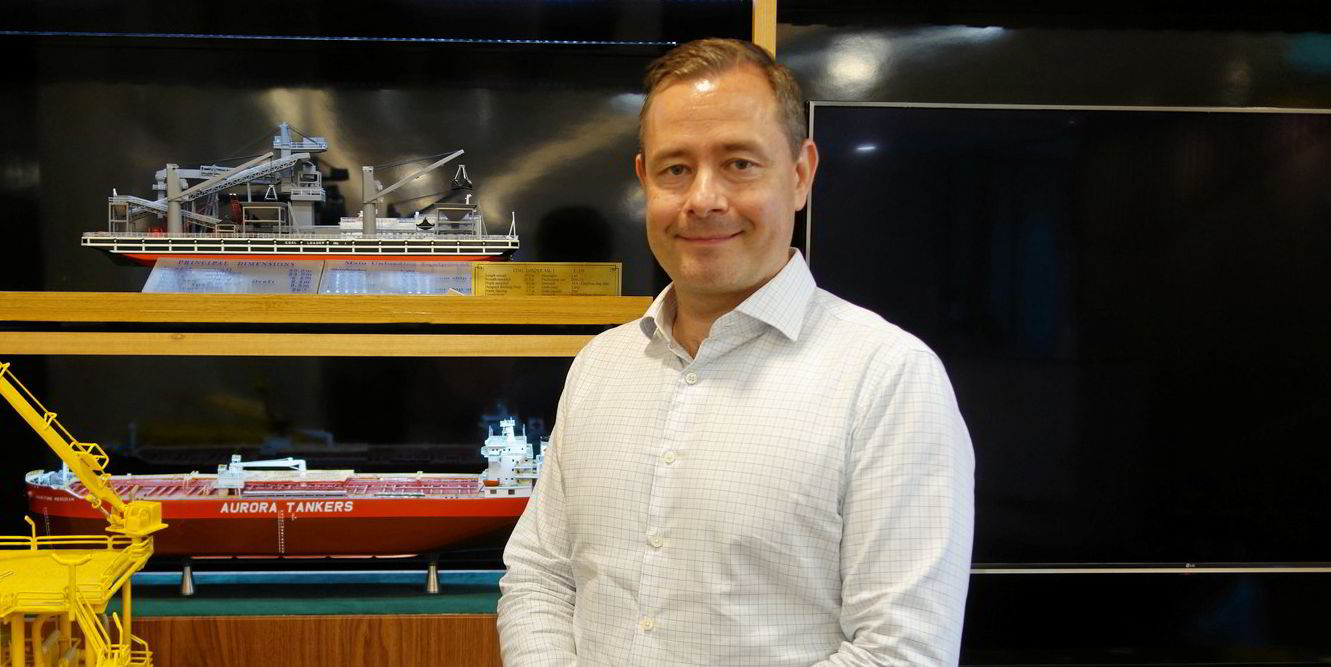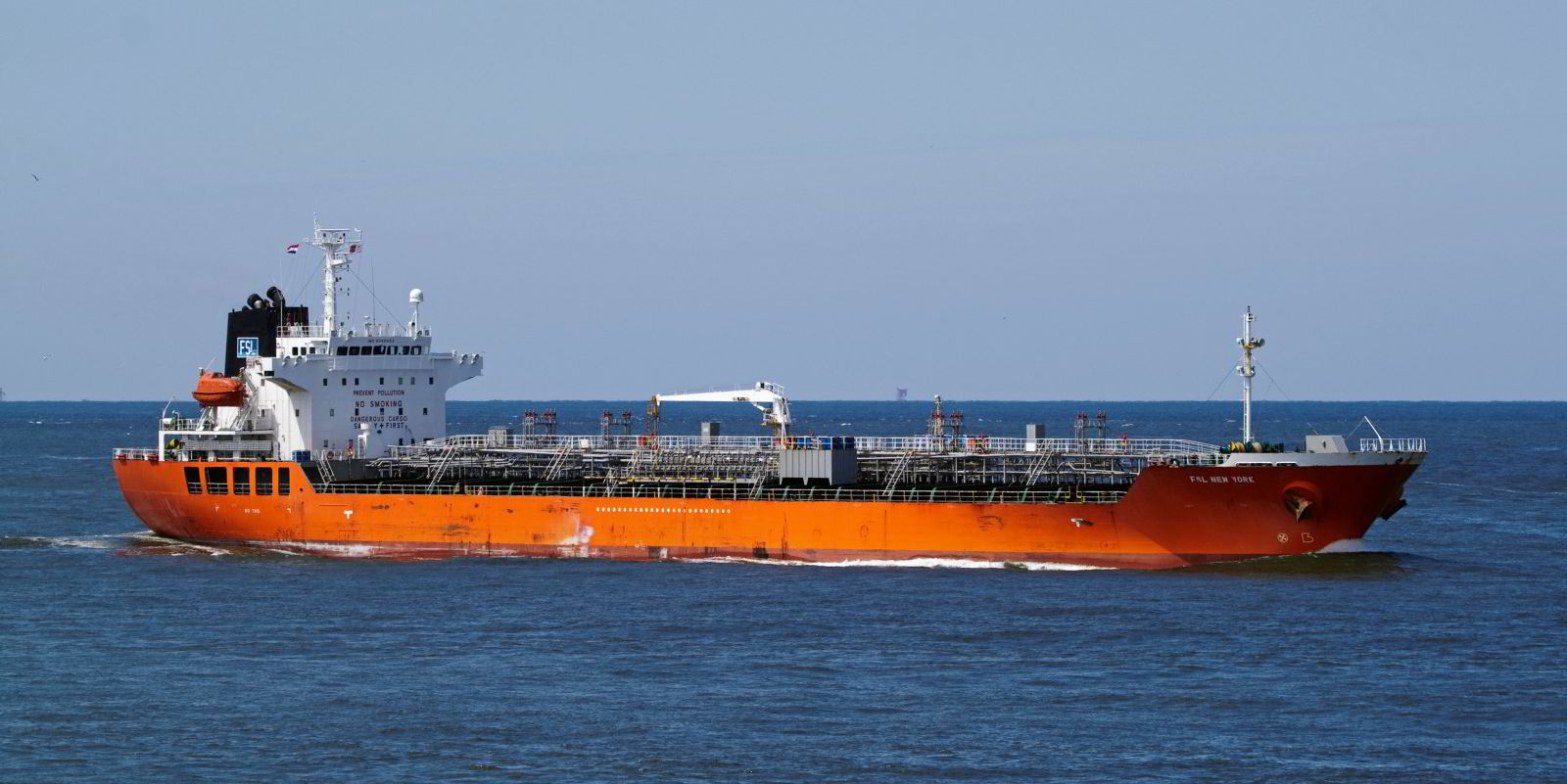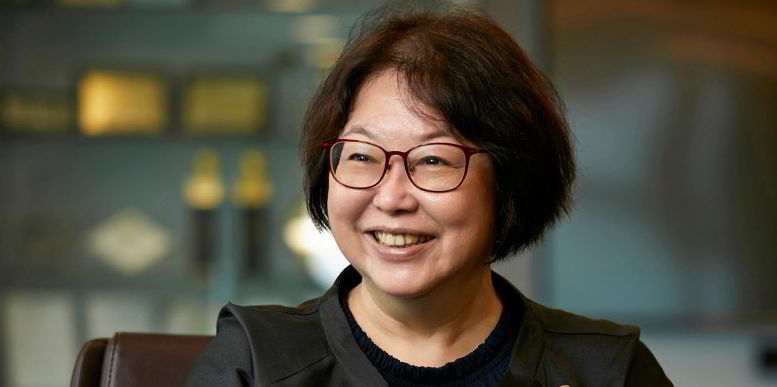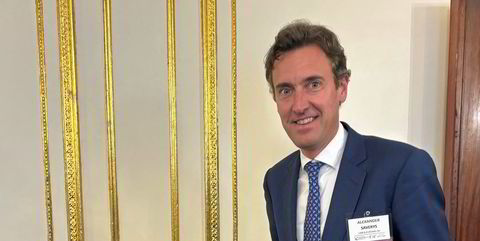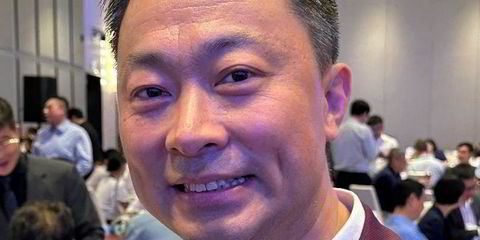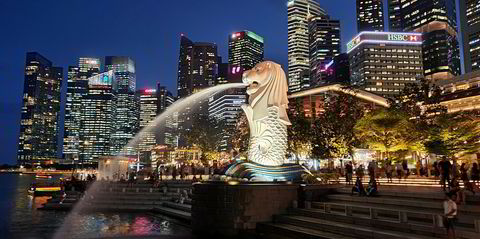Frederik Guttormsen, managing director of Singapore-based IMC Shipping, is leading the transformation of the Tsao family-owned tanker and bulker conglomerate from a traditional shipowner into a nimble asset-light operator.
Sustainable growth and building a strong team are his key priorities.
The transformation has seen a major internal top-to-bottom restructuring of the organisation designed to create better synergies between businesses and economies of scale.
What is known as the IMC Pan Asia Alliance Group was founded in Hong Kong shortly after World War II by the late, legendary shipping tycoon Frank Tsao.
Tsao, who came from an established shipowning family, had fled Shanghai following the communist takeover of China.
In Hong Kong, he established a successful bean trading business. He needed ships to carry cargoes of beans to customers elsewhere in Asia.
Thus, International Maritime Carriers was established.
Over the decades, Tsao grew his business interests in many different sectors. International Maritime Carriers developed into the IMC Pan Asia Alliance Group, a large pan-Asian conglomerate covering shipping to plantations to vast real-estate holdings — and just about everything else in between.
Control of the company passed to Frank Tsao’s son, Chavalit Frederick Tsao, following the legendary founder’s death in August 2019 at the age of 94.
The shipping arm falls under the umbrella of the IMC Industrial Group, which also covers logistics and ports, marine and offshore engineering, and plantations.
The moves will also better position it to leverage the diversified portfolio of parent IMC Pan Asia Alliance Group, which includes ports, shipyards and logistics in China, Indonesia and Thailand, and a newly launched maritime venture fund.
“We are optimising the organisation to fit the new model of an asset-light, global business, offering integrated solutions and services to the industry and to ensure we remain future fit,” said Guttormsen, who credited all members of the team he leads for making the transition a reality.
“We will still be shipowners but are unlikely to take a big position in traditional assets unless it is something new and exciting or will give us a competitive advantage.”
IMC Pan Asia’s shipping portfolio previously consisted of a loose collection of separate shipping companies and service entities under IMC Industrial Group.
The Singapore-based dry bulk arm traded under the IMC Shipping banner, while Pelita Samudera Shipping — an affiliated company headquartered in Jakarta — operated in the Indonesian domestic coal trades.
In the wet sectors, Aurora Tankers focused on the international chemical/products trades, while CSIC IMC Shipping — a joint venture with CSIC Leasing — operated a fleet of small chemical and product tankers in the Chinese coastal and near-sea trades.
Also included in the mix were several companies providing marine and offshore engineering and consultancy services.
Each company operated completely independently from the other, with its own management structure and operating systems — a model Guttormsen described as being far from efficient.
Now, these separate shipping businesses are being integrated into one entity under IMC Shipping.
Shares in Pelita Samudera, which is listed on the Indonesia Stock Exchange, will remain as part of IMC Shipping’s investment portfolio.
Individual brand names are being retained for now, and each will have their own commercial teams that report to a single executive management team.
Back-office functions and operating systems are being combined into one platform.
“What we are trying to do is create a trading mentality rather than a pure owner mentality,” Guttormsen said.
This shift has seen some high-profile new hires over the past two years on both the wet and dry sides.
New blood
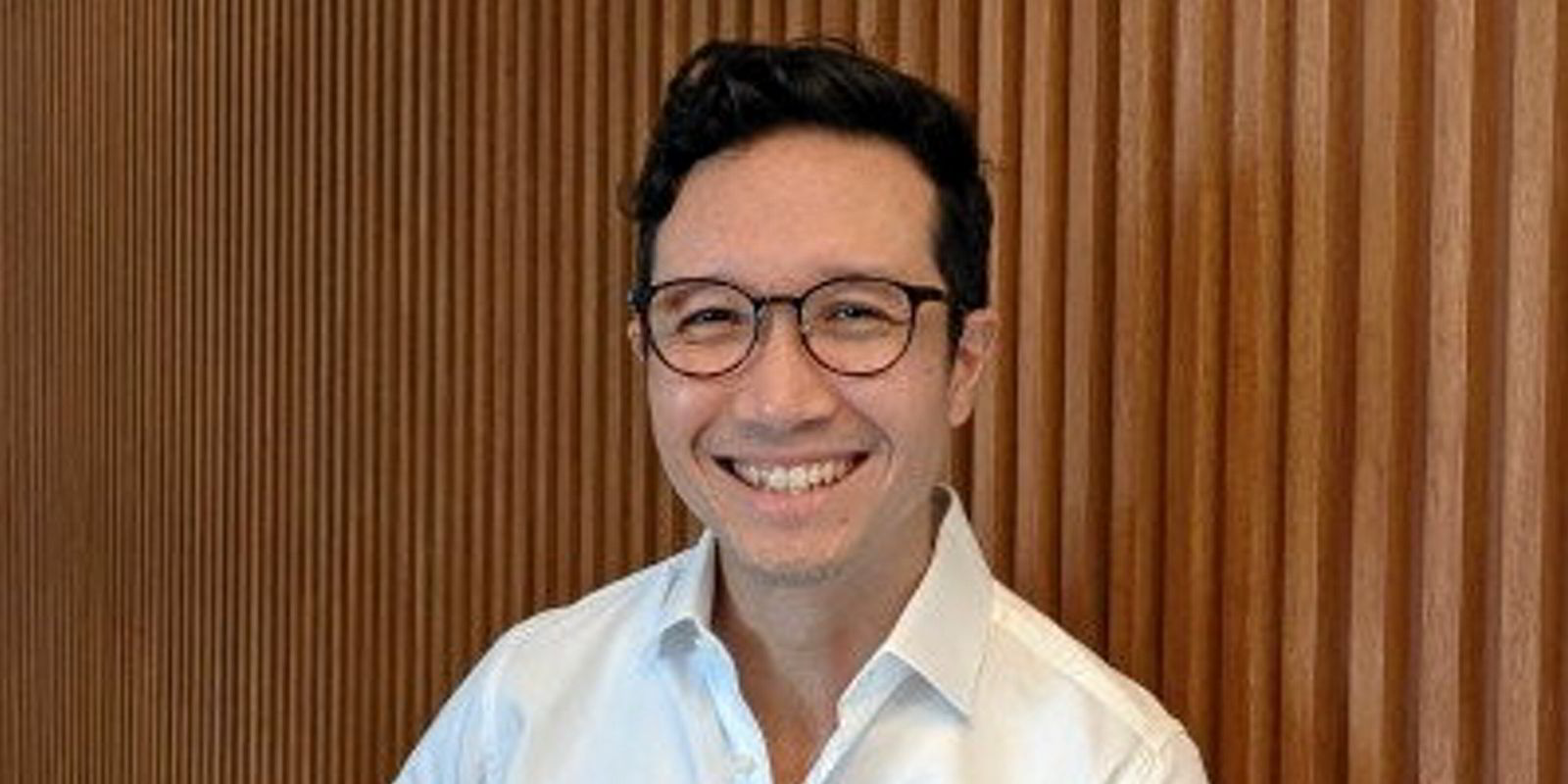
The retirement of Aurora Tankers’ long-serving chief executive Kenny Rogers in 2019 provided the opportunity for one of the new generation of Singaporean shipping professionals to show his mettle.
Dexter Say was appointed managing director of Aurora Tankers in February 2020.
Say — who holds a bachelor’s degree in information technology from RMIT University and a master’s in maritime studies from Nanyang Technological University — brought with him more than 16 years of experience in commercial roles trading freight with various industry leaders including five years with Navig8 Group, where he held several senior positions on varied portfolios including chemical tankers.
As head of Aurora Tankers, Say is responsible for a shipping book with assets of more than $400m that includes 22 MR2-type chemical/product tankers, and manages trading offices in Singapore, Dubai and Houston.
Guttormsen credited Say for “really improving Aurora’s performance” over the past year.
“Aurora is doing very well,” he said.
In July, Aurora Tankers joined with Golden Stena Baycrest Tankers (GSB Tankers) to form a pool of 10 J19 stainless-steel tankers, contributing three vessels.
Moving forward, the plan is to get other tanker operators to join Aurora Tankers’ existing pools, as well as start new pools.
Bulking up
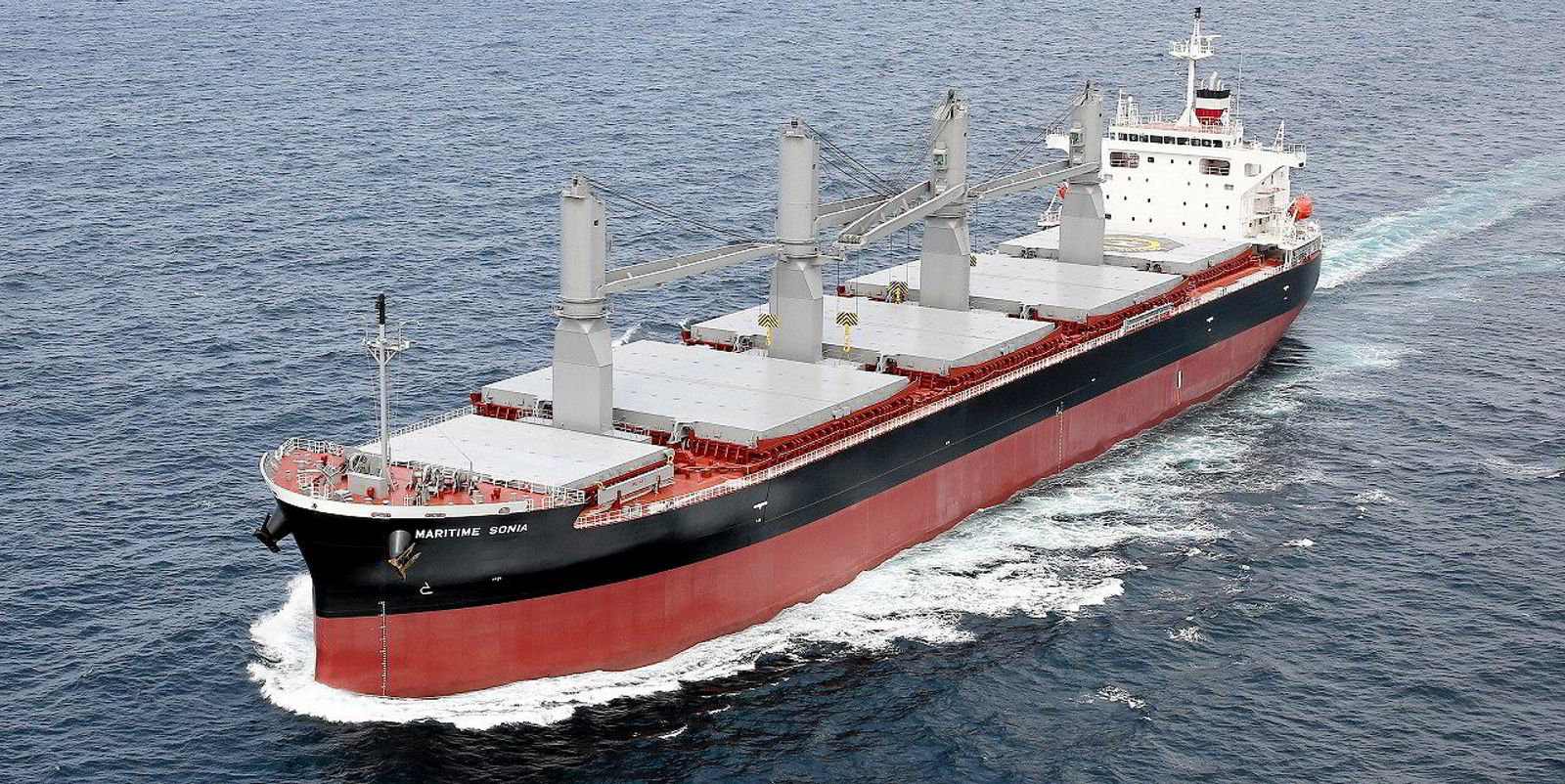
IMC Shipping revealed another high-profile hire in early July when it announced the appointment of Keith Denholm.
Denholm — a well-known figure in the dry bulk sector — is one of two commercial directors in the company’s dry bulk division. He has been tasked with growing the operating business.
Denholm’s 40 years of shipping experience covers tankers, gas and dry bulk from the broking, owner and operator sides.
“Keith has operator and trader experience, and comes with a lot of energy, ideas and a great network,” Guttormsen said.
“As part of our aggressive growth strategy for bulk, we hired six new young people in chartering over the past year. We needed someone to lead them, and Keith fitted the bill.”
The second commercial director — IMC Shipping veteran TK Kim — concentrates on long-term contracts of affreightment and project cargoes.
IMC Shipping has been running on an asset-light model on the dry side for more than a decade, during which time it cashed in on high bulker values by selling ships during market peaks.
It offloaded its last conventional bulkers — three handysizes and a pair of supramaxes — to Pelita Samudera in 2018 and 2019. The Indonesian company has a fleet of seven conventional bulkers, several floating loading facilities, and more than 100 tugs and barge sets.
Through charters of various types, IMC Shipping controls more than 40 conventional bulkers at any given time. They trade predominantly in the Indian Ocean and the Pacific, although its business in the Atlantic is growing.
“We go up to panamax, but we don’t go to capes,” Guttormsen said.
It has retained ownership of four 64,800-dwt tween-decked supramaxes dating from 2016 and 2017.
These vessels are used for special projects, such as carrying windmills from China to West Africa, where they load manganese ore back to China. About 10 ships are deployed in this unique trade at any given time.
Ship-management rebranding

As part of the transformation of IMC Shipping, its wholly owned independent ship-management company MSI is being brought back into the fold and will be rebranded as IMC Ship Services.
Combined with other marine technical service entities within the IMC Industrial Group, the rebranded company will provide technical management and newbuilding supervision services to both IMC Shipping and third-party customers.
“IMC Ship Services will be part of our service offering to our customers and shipowners we work with,” Guttormsen said. “We can provide technical management for owners putting their ships in our pools.
“As the shipping industry moves into new technology and decarbonisation, we can use our expertise and knowledge to manage ESG on behalf of others.”
Flying high

When Guttormsen graduated from EU Business School in 2003, he never expected to be running a large shipping company in Asia by his mid-40s.
In fact, the Norwegian national had his sights set firmly on a career in the airline industry.
Guttormsen’s first corporate job was with what was then a small regional airline called Norwegian Air Shuttle. He was part of a team that laid the groundwork for turning the company into a large and successful European low-cost carrier.
Guttormsen then joined an international team tasked with rescuing South African Airways, a struggling dinosaur of a national carrier that was suffering from years of political interference and corporate mismanagement.
"I had four wonderful years in South Africa and worked with some really great people," he said. "Political decisions had destroyed much of the commercial part of the airline, but the technical and operational departments were second to none. And the country has to be one of the most beautiful places on earth."
A chance meeting with Jacob Stolt-Nielsen after returning to Norway in 2012 is what led to Guttormsen feeling what he described as “the call of the sea”.
“Being Norwegian, it was inevitable,” he said.
Guttormsen joined Stolt Tankers' Rotterdam-based team in 2012. The following year, he moved to Singapore as general manager of Stolt Asia Pacific.
Guttormsen joined IMC Shipping in December 2018, just as it was beginning a major transformation from a traditional shipowner into an asset-light service operation.
